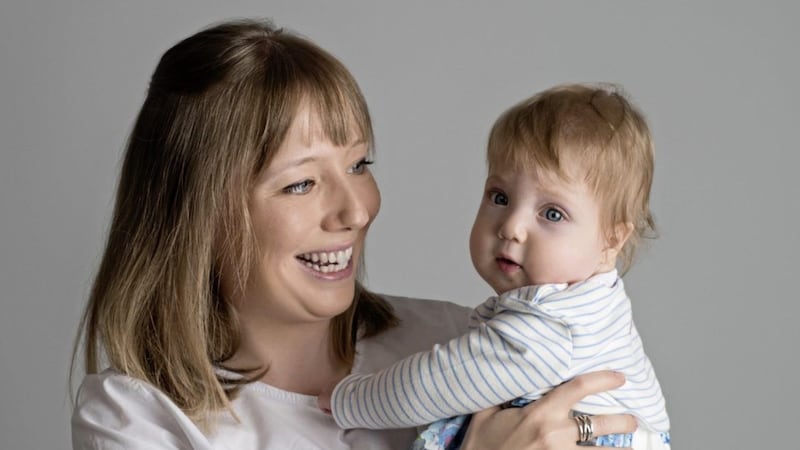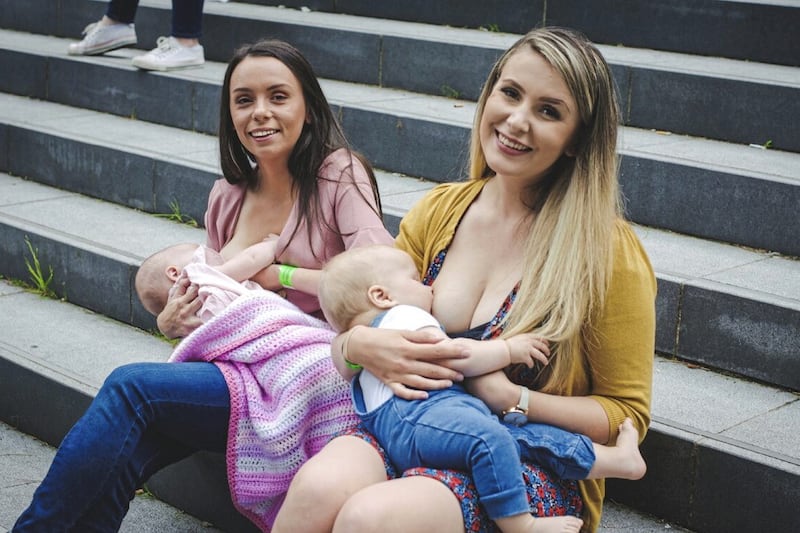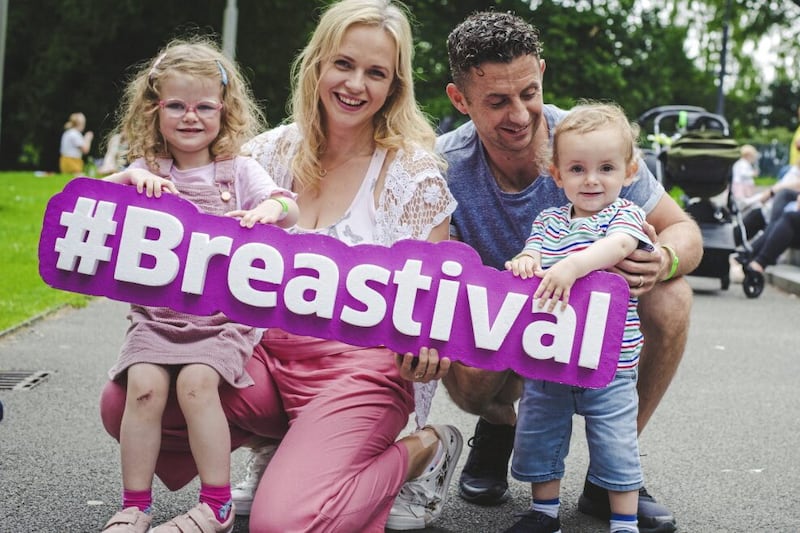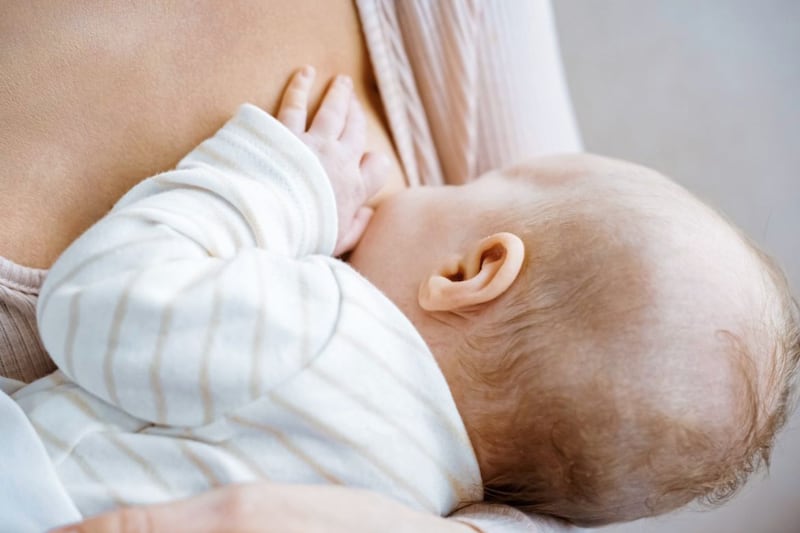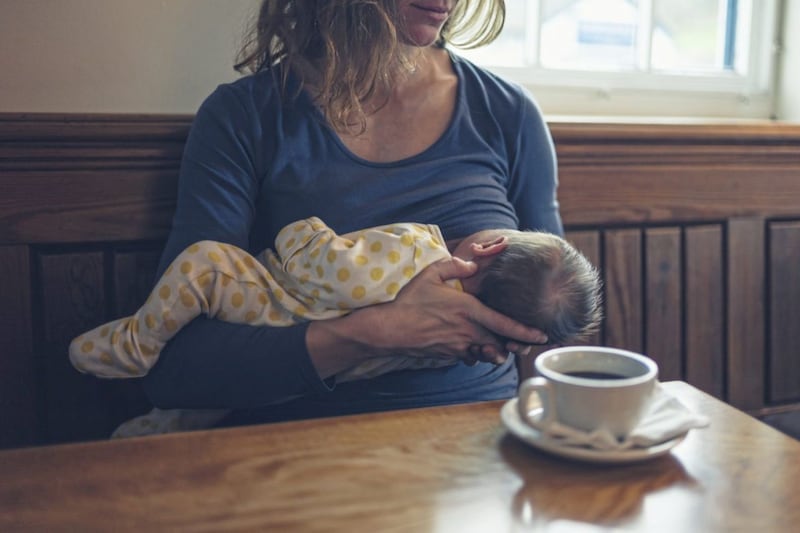DESPITE the NHS and World Health Organisation recommendation that children be breastfed until the age of two and beyond, only 7 per cent of children in Northern Ireland are breastfed past six months.
Helping dispel fears, offer support and celebrate breastfeeding as part of everyday life, Breastival offers what organisers promise will be a fun-filled and informative family festival at The Ulster Museum on Saturday August 4.
As part of that event, they will also seek to break last year's record for the most children breastfed at the same time and place in Northern Ireland, as part of the Global Big Latch On.
Breastival features talks by renowned pharmacist Dr Wendy Jones alongside local experts, including consultant surgeon Ciara McGoldrick on breast health and try-out sessions on baby sensory, pregnancy yoga, mindfulness and sing and sign.
Ask the Expert: What are the advantages of breastfeeding over bottle feeding?
A special addition to Breastival’s programme this year is Let Down, the world premiere of a unique performance piece that interweaves movement, verbatim text, and an original soundscape to give voice to women's experiences of keeping tiny humans alive.
"Breast is not best, it’s just normal and for it to be a real choice for families it needs to become socially and culturally normal again," says Breastival co-founder Jennifer Hanratty, in response to research that shows women here are stopping breastfeeding before they really want to.
"Too often new parents think that breastfeeding should come naturally, and when it doesn’t, feel like they’ve failed, but in truth they have been failed by a lack of support and real education about how to breastfeed. Parents and babies need to be taught those skills and family and wider society need to support and protect them to make that steep learning curve a little bit easier."
:: Breastival is a free to attend event and open to everyone but pre-registration is required at Breastivalbelfast.co.uk. The Big Latch On will be at 10.30am. Mums who can't attend are invited host their own latch on event on the weekend of August 3-5. For further information visit Biglatchon.org/easy-steps-to-hosting-the-big-latch-on.
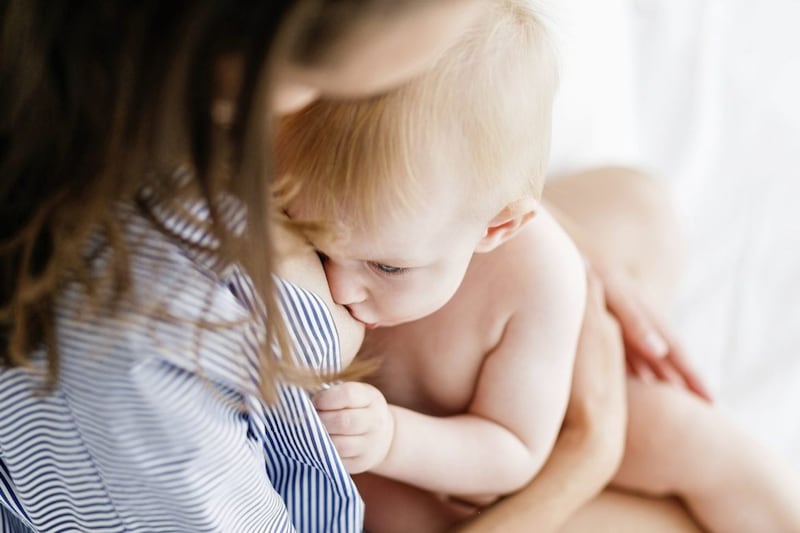
EXPERT ADVICE ON BREASTFEEDING AND DIET
SHOULD I be eating peanuts while breastfeeding? How do I loose weight after having a baby? Should I be taking iron tablets. Does what I eat affect my milk supply?
Jennifer Ashcroft is a registered paediatric dietitian working within the South Eastern NHS Trust, specialist lactation consultant, and mum of nine-month-old daughter, Emmeline.
Passionate about ensuring optimal infant and maternal health, Jennifer is delighted to be speaking at Belfast's Breastival, on August 4. Here she addresses some common concerns new mums have about diet and nutrition.
What would you say is the biggest myth surrounding breastfeeding and nutrition?
That breastfeeding mothers need to restrict the range of foods they eat, or go on a ‘bland’ diet. There is ongoing research that suggests that if mum eats a wide variety within her diet, her infant will subsequently be more inclined to accept a wide variety of foods in their diet as they have been exposed to subtle and variable tastes in their mother’s milk.
This concept that the child will grow up more likely to experience and be accepting of a varied diet can only be a good thing, as they are more likely to enjoy a healthy range of foods and will be less likely to miss out on specific food groups or nutrients.
How is milk supply affected by diet?
Overall, mothers diet has very little impact on the quality of the milk she makes. Research shows us that the baby will get nutritionally adequate milk, even in extreme situations, infact it is the mothers nutritional health that suffers. It is therefore for mums health and subsequent pregnancies that maintaining a healthy diet throughout breastfeeding is important.
What shouldn’t you eat when breastfeeding?
Although most mothers should never need to alter their diet while breastfeeding, there may be some mothers who find foods in their diet upset their infant, such as caffeine, or that they need to undertake exclusion diets due to suspected allergies. The should be assessed on an individual basis and with the support of a healthcare team.
Does eating nuts make it more likely that your child will have an allergy to them?
The short answer is no. The advice on this has changed over the years, but the latest research suggests that avoiding peanuts during pregnancy and while breastfeeding does not reduce the risk of a child having a reaction. If you have a family history of any food allergies it is best to be cautious and discuss with your healthcare team.
What is the most important nutritional advice you would give to new mums?
Make sure you remember to look after yourself and prioritise your health as much as your baby’s. Nutrition is closely linked with so many aspects of our health, of particular relevance to new mums is with mental health and recovery after birth.
Being the sole source of nutrition to a new baby can be all consuming, and when you are running on empty yourself that task is made all the more daunting and difficult. Eating regular meals, taking time to enjoy a meal and rest, making sure you have enough fluids while feeding, and accepting offers of help if family and friends offer to cook are just some ways to ensure good nutritional health.
Many mums are too tired or busy to eat 'properly' in the early days. What is your advice on preparing easy nutritious meals and snacks?
Getting the time to have a sit down meal in the early days of breastfeeding can be difficult. Having meals that can just be heated are easiest, and frozen vegetables are great for this period of time as they can easily be added to meals without much preparation. Freezing batch cooked meals in portions cuts out a lot of the work, but make sure to label them – you don’t want to be expecting a spaghetti Bolognese and get a chilli.
For the families that don’t necessarily have the support to help with cooking, having a sling or baby carrier can make all the difference when trying to prepare something to eat, keeping baby close and content.
Snack wise, some cereals can be a great, quick and easy options and can be prepared single-handedly. Fruit, yoghurts, crackers, breadsticks and sandwiches are all great snacks, but there is also no harm in treating yourself either to your favourite chocolate, biscuit or crisps – all things in moderation.
Do breastfeeding mums need more calories than non-breastfeeding mums?
Yes, on average 300-500kcal/day more; however some of these additional required calories may come from reserves formed during pregnancy.
Should new mums be taking supplements?
For the average new mum who consumes a reasonably well balanced diet, vitamin and mineral supplementation is not required. This is because vitamins and minerals are more readily available for absorption through dietary sources, and the increased requirement for calcium during this period is met from maternal stores.
For women who are on strict vegetarian or vegan diets, or those who are having to undertake an exclusion diet, such as dairy, due to suspected infant allergies, supplementation is worth considering as individual micronutrients may be at risk.
B12 in particular is a vitamin commonly found in animal products, mothers on vegetarian or vegan diets, or those already at risk of B12 deficiency should seek advice regarding safe supplementation
A recent key message from the Public Health Agency (2017) is the new evidence that all infants from birth to one year of age who are either exclusively or partially breastfed, are recommended to receive a daily supplement containing 8.5 to 10 micrograms vitamin D. This advice also stated that women who are pregnant or breastfeeding during the months October to March should consider taking a 10 microgram vitamin D supplement.
Some women feel pressure to get back in shape quickly after birth. When is it safe to go on a weight loss diet?
It is important to remember what your body has been through, and that it took nine months for those changes. Mums who breastfeed for more than six months and do so exclusively are most likely to see the greatest loss.
Diet alone will bring about some weight loss; however for best results, balancing dietary intake with exercise is necessary. It is important to follow your doctors recommendations in relation to exercise, and only commence exercise when you feel able and ready.
Waiting until breastfeeding is established (six to eight weeks) before undertaking a diet is sensible, and restricting calories gradually is the best way to protect your milk supply from decreasing. Safe weight loss is approximately 0.5-2lb/week with the recommendation to not go below 1,800kcal/day.
